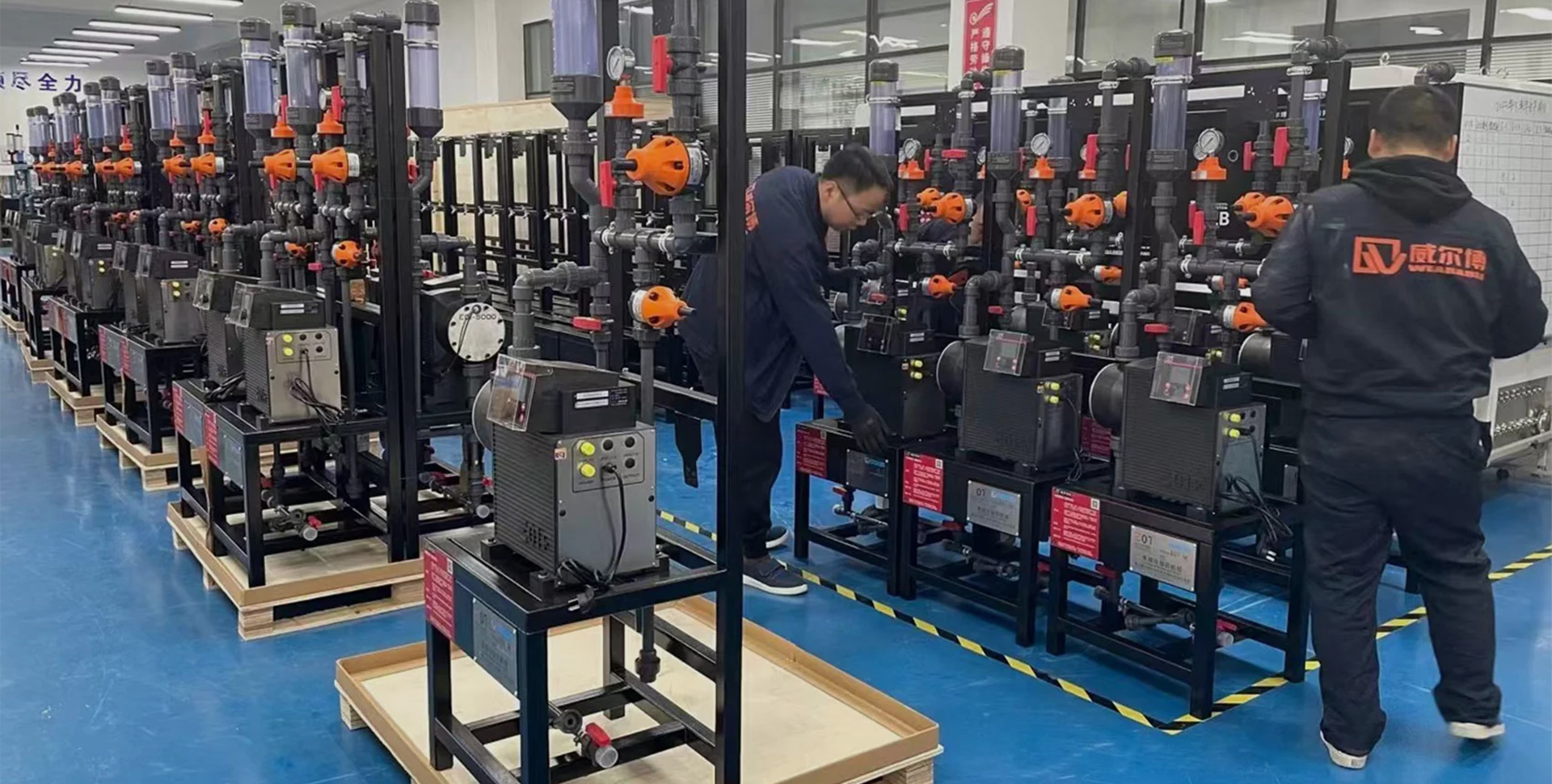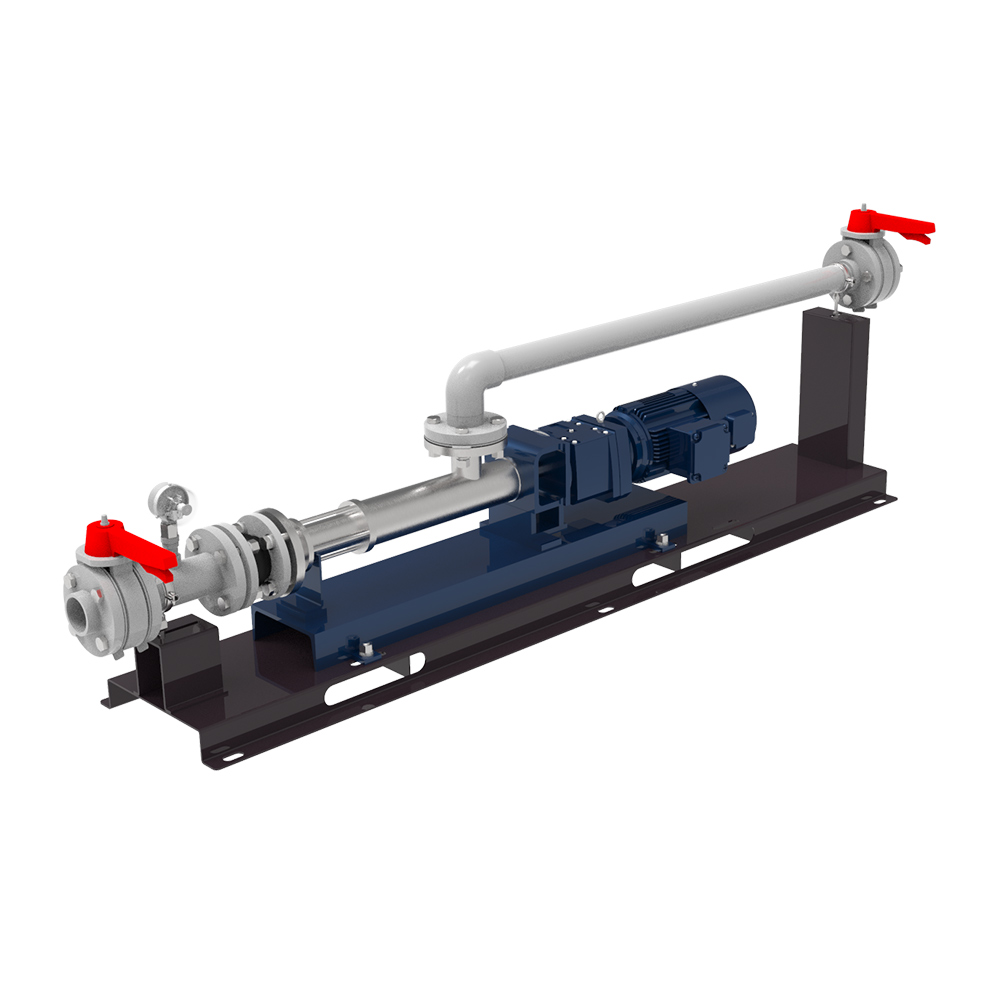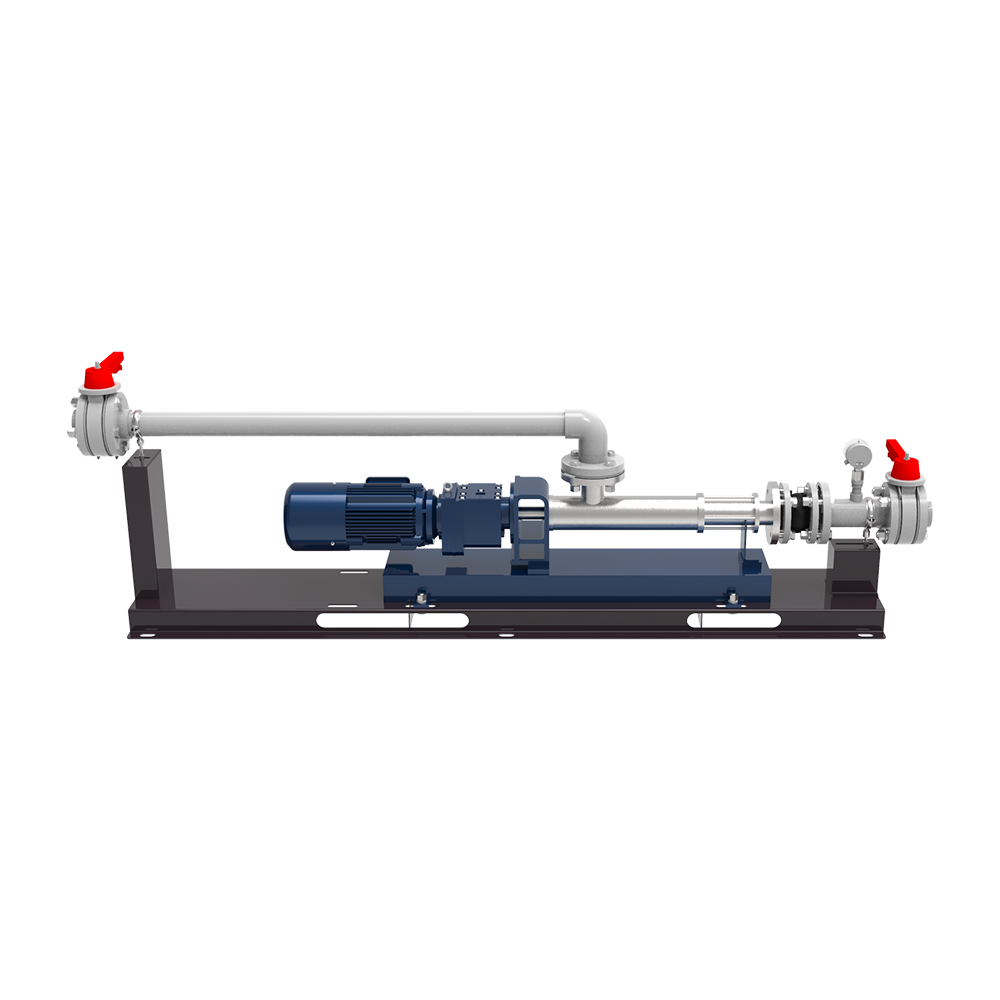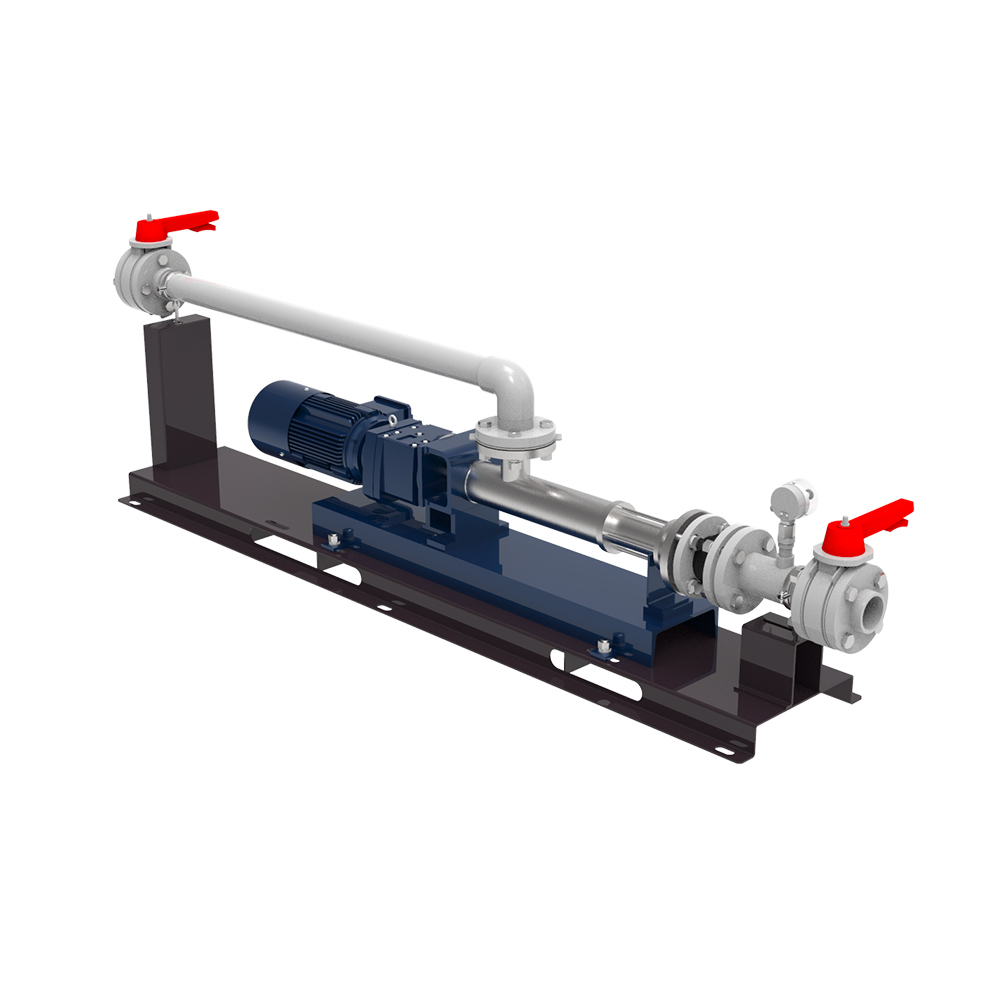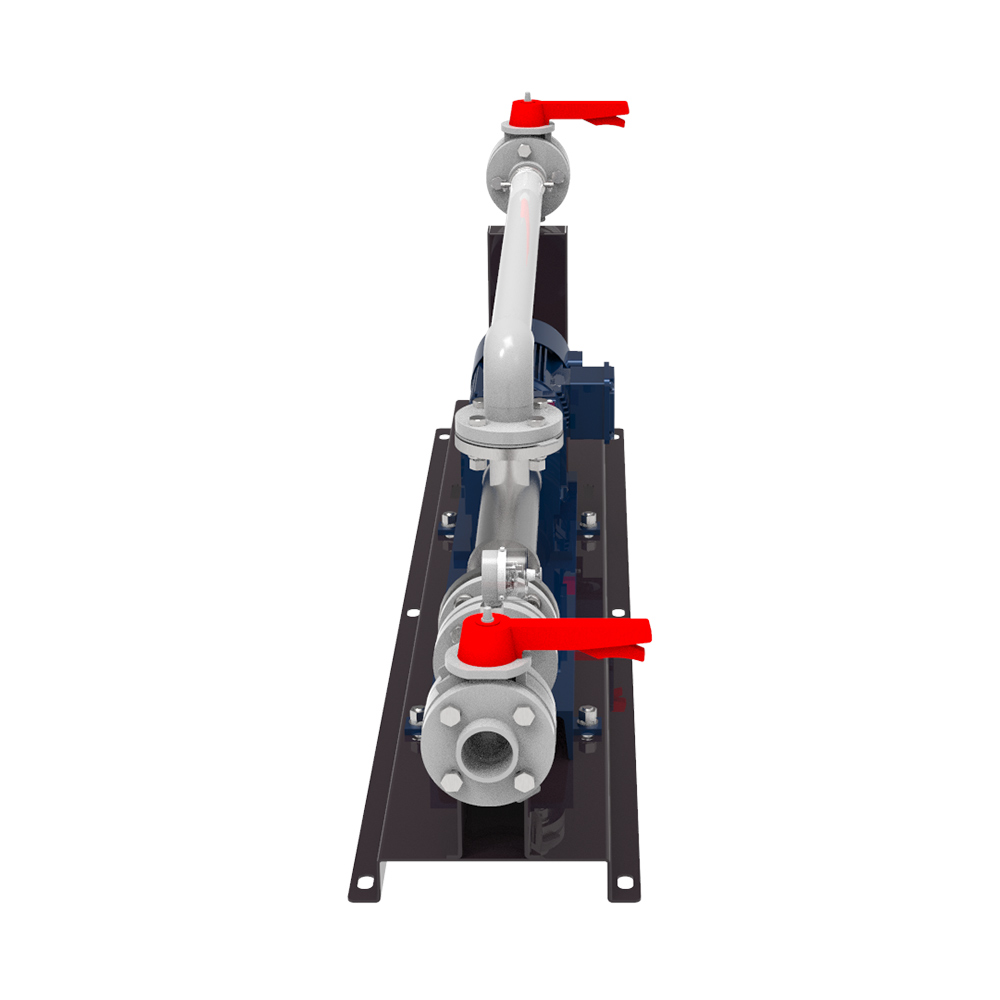VD030-P04OH-S-JRTRF39DN90L4
One of the standout features of screw pumps is their self-priming capability, which allows them to effectively handle liquids with air or gas content and ensures uninterrupted operation even when starting from dry conditions. Their robust construction provides exceptional suction capabilities, making them particularly well-suited for applications involving high-viscosity, particle-laden, or heavy fluids that might otherwise cause blockages or excessive wear in traditional pumps.
The screw pump is a type of positive displacement pump designed to provide smooth, pulsation-free fluid flow across a wide range of applications. Known for its ability to handle both low- and high-viscosity fluids, as well as abrasive slurries and shear-sensitive liquids, screw pumps are a trusted solution for industries requiring consistent, reliable fluid transfer. Featuring intermeshing screw rotors, these pumps offer exceptional flow stability and high volumetric efficiency. Whether dealing with clean liquids, sludge, or viscous materials, screw pumps are engineered for superior performance in the most demanding industrial environments.
Product Advantages
1. Pulsation-Free Flow
One of the standout advantages of screw pumps is their pulsation-free flow. Unlike centrifugal pumps, which may cause flow fluctuations, high efficiency screw pumps provide a steady, uninterrupted flow of fluid, regardless of pressure fluctuations. This makes them ideal for applications where maintaining a consistent flow is critical, such as in chemical dosing or sludge transfer. The smooth flow reduces vibration and noise, minimizing wear on the system and enhancing the longevity of downstream equipment.
2. Wide Viscosity Range
Screw pumps are highly versatile and capable of handling fluids ranging from thin, low-viscosity liquids like water, solvents, and fuels, to thicker, high-viscosity materials such as oils, greases, slurries, and polymers. Their robust design ensures reliable performance even with viscous or abrasive fluids, making them suitable for applications in industries like oil and gas, metallurgy, wastewater treatment, and new energy.
3. Self-Priming and Excellent Suction
Screw pumps are self-priming, meaning they can start operating from a dry state and effectively handle air or gas pockets in the fluid, ensuring that the pump runs smoothly without issues. Their excellent suction capability allows them to handle thick, particle-laden fluids or liquids with a high viscosity without clogging, which is especially beneficial in applications involving slurry, sludge, or abrasive fluids.
4. Low Maintenance and Durability
With fewer moving parts in contact with the fluid, screw pumps are designed for low maintenance. The simple mechanical structure, coupled with their self-priming and pulsation-free operation, results in fewer breakdowns and reduced wear. Additionally, screw pumps are constructed with corrosion-resistant materials, making them durable enough to handle harsh chemicals, abrasive particles, and extreme temperatures. These features result in a long service life, reducing the need for frequent maintenance and minimizing operational costs.
Product Applications
Screw pumps are used across a variety of industries for a range of applications. Below are some of the key sectors where screw pumps play a vital role:
1. Sewage Treatment
Screw pumps are widely used in wastewater treatment plants to transfer sludge and chemical additives. Their ability to handle abrasive, thick slurries makes them ideal for transferring materials that need to be treated before disposal or reuse. In sewage treatment, screw pumps can also be used for chemical dosing, adding flocculants or pH adjusters to help break down waste and ensure optimal treatment.
Application: Transporting sludge, dosing chemicals like flocculants and pH adjusters.
Benefit: Smooth flow, minimal wear, and reduced downtime.
2. Automobile Manufacturing
In automobile manufacturing, screw pumps are employed to transfer lubricants, oils, and additives like paint and colorant masterbatches. For paint color mixing, where precise and consistent dosing of colorants is critical, screw pumps ensure smooth and accurate flow, preventing issues like foaming or irregular coloring in the final product.
Application: Dosing paint additives, lubricants, and other fluids.
Benefit: Consistent flow, minimizing waste and ensuring high-quality finishes.
3. Metallurgy and Chemicals
In the metallurgy and chemical industries, screw pumps are used to transfer acid additives, chemical reagents, and other corrosive materials in processes such as smelting and ore processing. Their durability and ability to handle harsh chemicals and abrasive fluids make them ideal for these demanding environments.
Application: Dosing acid additives in smelting and refining processes.
Benefit: Resistance to corrosion and reliable performance under harsh conditions.
Screw pumps are an indispensable tool for fluid handling in a wide variety of industries. Their ability to handle a broad range of fluids—whether viscous, abrasive, or shear-sensitive—coupled with their smooth, pulsation-free flow, makes them ideal for critical applications. From sewage treatment to automobile manufacturing and new energy production, screw pumps provide a reliable, low-maintenance, and energy-efficient solution for fluid transfer, ensuring long-term value and performance across diverse industries.

